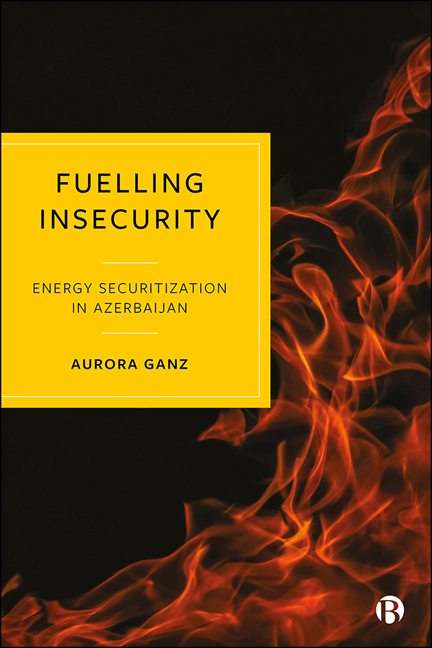Book contents
- Frontmatter
- Dedication
- Contents
- 1 Introduction
- 2 An Analysis of Actually Existing Energy Securitizations
- 3 Energy Securitization in the Land of Fire
- 4 Everyday Practices of Energy Security in Azerbaijan
- 5 Beyond the National Borders: NATO and Energy Security in Azerbaijan
- 6 Energy Securitization and the Private Sector: The Case of BP
- 7 Energy (In)Securitization: Abusive Security Practices and Poor Energy Choices
- 8 Conclusion
- References
- Index
7 - Energy (In)Securitization: Abusive Security Practices and Poor Energy Choices
Published online by Cambridge University Press: 13 May 2022
- Frontmatter
- Dedication
- Contents
- 1 Introduction
- 2 An Analysis of Actually Existing Energy Securitizations
- 3 Energy Securitization in the Land of Fire
- 4 Everyday Practices of Energy Security in Azerbaijan
- 5 Beyond the National Borders: NATO and Energy Security in Azerbaijan
- 6 Energy Securitization and the Private Sector: The Case of BP
- 7 Energy (In)Securitization: Abusive Security Practices and Poor Energy Choices
- 8 Conclusion
- References
- Index
Summary
Since its independence, Azerbaijan – the Land of Fire – has seen its oil and gas industry as a quintessential component of its identity and the engine that could first lead to and then consolidate the country's economic success and international reputation. Energy is intrinsically linked as much to nation building as to state building. It has ideationally and materially defined the country's historical trajectory. The centrality of energy has positioned it at the heart of Azerbaijan's national security. The previous chapters have also shown that the security of Azerbaijan's energy has received priority status also internationally, becoming a matter of global security or being embedded in the agenda of states, private companies and regional organizations that have a direct interest in the protection of the industry. These multiple processes of energy securitization have normalized a force-oriented approach to energy security, which enables the deployment of military and security professionals across large parts of Azerbaijan's territory. At the same time, the exclusive focus on oil and gas has constrained our energy imagination to distinct forms of energy production and consumption, as well as to specific economic models. Energy securitization encircles and inhibits the possibility for energy and security outside these established categories. The analysis of energy securitization in Azerbaijan shows that the rhetorical emphasis given to energy security as existentially critical and the routinized character of its practices have trivialized any possible alternative, while making invisible the effects that energy securitization has beyond the egoistic interests of those actors that benefit from that process. This chapter focuses on the multiple forms of insecurity created by the securitization of energy in Azerbaijan to unpack and problematize the implications of its practices. The first section outlines manifold instances where energy security practices have led to abuse, violence and harassment. More specifically, it exposes everyday abusive behaviours by security professionals and the use of force to surveil workers and to repress different energy-related protests, such as marches and rallies against energy projects and energy shortages and blackouts, as well as in defence of energy workers’ rights. This analysis also explains how energy securitization has affected Azerbaijan's communities, altering their demographic composition, amplifying socio-economic divides and contributing to gender violence, the spread of diseases and illegal trafficking.
- Type
- Chapter
- Information
- Fuelling InsecurityEnergy Securitization in Azerbaijan, pp. 145 - 162Publisher: Bristol University PressPrint publication year: 2021



